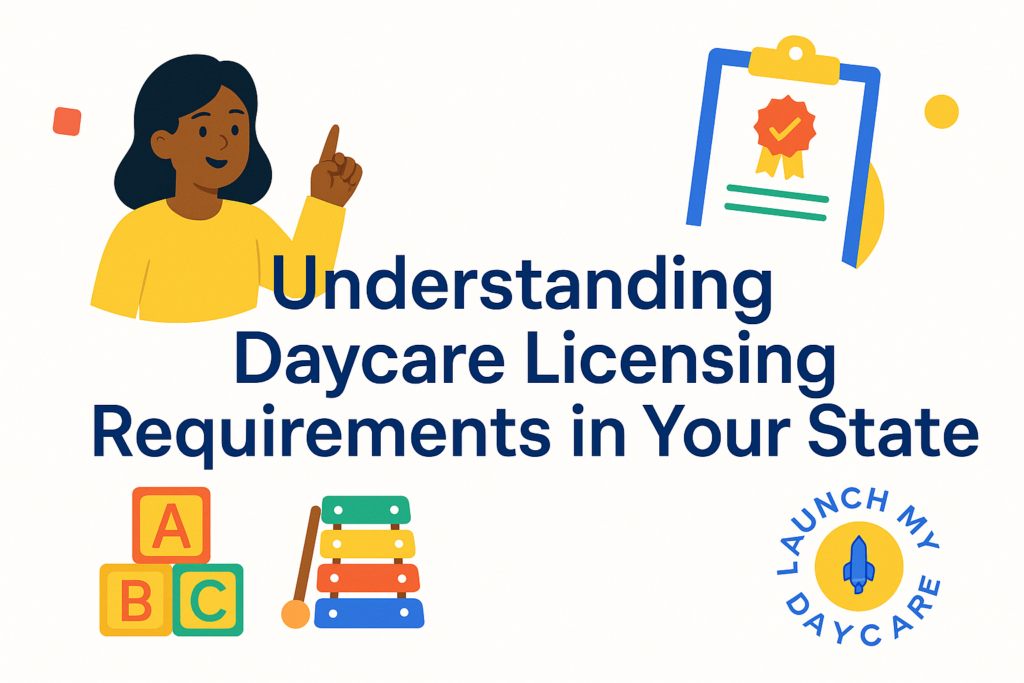
Before opening your doors to families, you need to understand your state’s childcare licensing requirements. These regulations ensure the health and safety of children and protect your business from legal risks.
Why Licensing is Important
Licensing proves your daycare meets the state’s standards for care, safety, and facility setup. It also makes your business more appealing to parents and enables you to accept subsidies and enroll in food programs.
Know Your State’s Guidelines
Each state’s Department of Health and Human Services or Child Care Licensing Division provides details on what’s required to get licensed. These typically include:
• Criminal background checks
• CPR and First Aid certification
• Health and safety training
• Facility inspections
• Fire marshal and sanitation approvals
• State-approved training such as Director Orientation, Child Development Certifications, Food Handling Certifications, and Van Safety Certifications
INSPECTIONS AND VISITS
You will also need a health inspector visit to ensure that your facility meets health standards. If you plan to receive state subsidies (such as Title XX or other state-funded childcare assistance programs, which vary in name by state), a state subsidy worker may need to conduct an onsite inspection.
TYPES OF LICENSES
Some states offer different levels:
• License-exempt care for very small numbers of children
• Family child care license for in-home daycare
• Child care center license for larger facilities
Documentation and Application
You’ll typically need to submit an application, floor plans, policies and procedures, proof of training and insurance, and meet facility standards. There’s usually an application fee as well.
Ongoing Compliance
After receiving your license, you must stay compliant with ongoing inspections, recordkeeping, and training updates. It’s essential to stay up to date with changes in your local laws.
Additional Requirements to Watch For
Each state may have its own additional specific requirements. For example:
• Nebraska requires a written curriculum and daily class schedules.
• Fire/tornado/hurricane exit signs must be posted depending on your area.
• Sufficient toys and equipment must be available for each child enrolled.
• A storm shelter must meet certain square footage requirements.
• Outdoor playgrounds must meet specific space and shading requirements.
Make sure to review your state’s full licensing manual to ensure full compliance.
